The Imperial Auction: Fact or Fiction? Unraveling the Reign of Didius Julianus
In the shadowed corridors of Roman history, Marcus Didius Julianus stands as one enigmatic figure to wear the imperial purple.
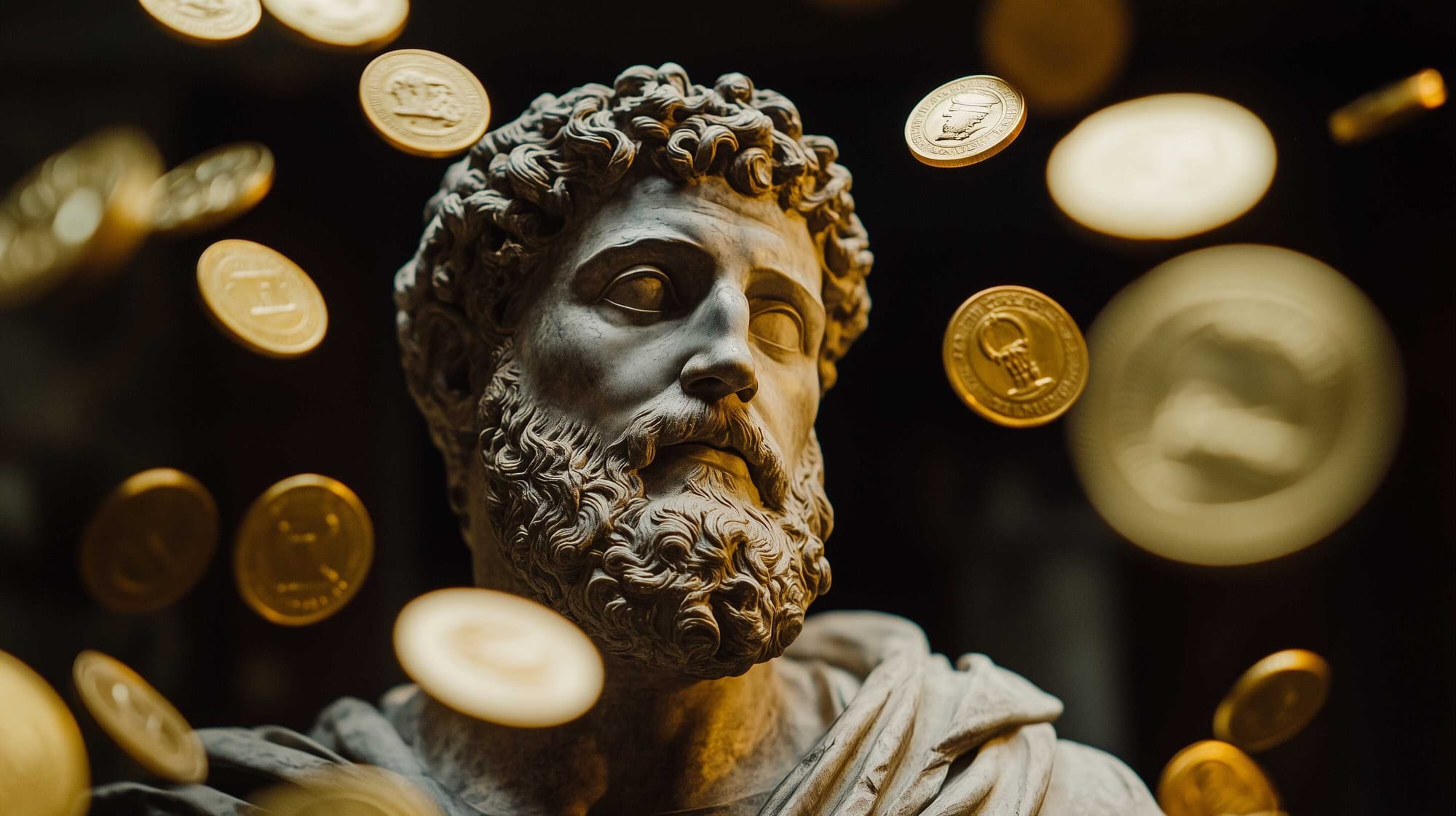
Marcus Didius Julianus’ brief, ill-fated reign is remembered not for triumphs or reforms but for a singular, scandalous claim: that the empire itself was sold to the highest bidder in a grotesque auction by the Praetorian Guard.
Yet was this tale—a spectacle of greed and betrayal—fact, or a cleverly woven piece of propaganda to delegitimize a man already doomed by circumstance? Beneath the layers of rhetoric and political maneuvering lies a story waiting to be uncovered, one that might challenge everything we thought we knew about the man who supposedly dared to buy an empire.
Didius Julianus: Reassessing the Emperor and His Legacy
A closer examination of the sources, including the Vita Didii Iuliani in the Historia Augusta, reveals a more nuanced picture of Julianus as an accomplished administrator caught in a turbulent political moment. This reevaluation sheds light on the role of propaganda and bias in shaping his historical reputation.
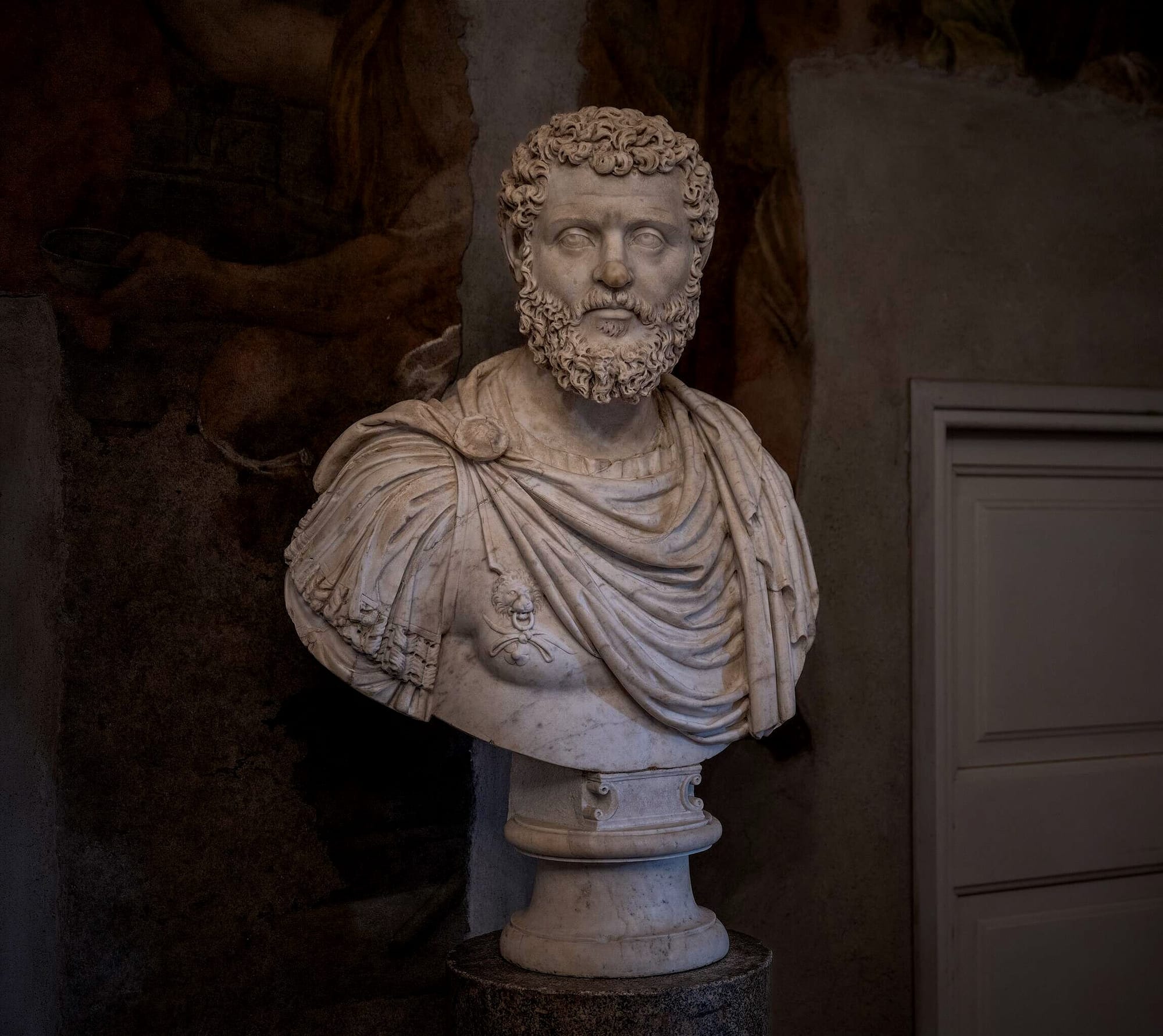
An Aristocratic Beginning
Born into a prominent Milanese family, Marcus Didius Julianus was raised in the household of Domitia Lucilla, the mother of Marcus Aurelius. This connection placed him among Rome's elite and provided a foundation for a distinguished political career.
Julianus served under Marcus Aurelius, holding key military commands and governing provinces such as Africa and Lower Germany. Despite later accusations of corruption and plotting, these roles demonstrate his competence and integration into the Roman aristocracy.
Challenges of Julianus’ Reign
His reign was marked by immediate and overwhelming challenges. Public resentment against his perceived illegitimacy was palpable, with mobs accusing him of buying the throne and demanding his abdication. Cassius Dio describes these protests vividly, noting the hostile reaction of the Roman populace.
Julianus’efforts to stabilize his rule included fortifying the city against the advancing Septimius Severus and attempting to negotiate alliances. Yet, his position was undermined by the Senate’s lack of support and Severus’ rapid consolidation of power. Julianus’ conciliatory approach, though pragmatic, failed to inspire loyalty among his subjects.
The negative portrayal of Julianus in sources such as Cassius Dio and Herodian is partly attributable to Severan propaganda. Dio’s metaphor of the empire being sold like a commodity (“just as if it had been in some market or auction room”) served to delegitimize Julianus and justify Severus’ claim. Herodian expanded on this imagery, presenting the Praetorians as openly declaring the empire for sale.
In contrast, the Vita Didii Iuliani offers a more sympathetic view, highlighting Julianus’ qualifications and administrative achievements. This text suggests that Julianus’ downfall was not due to personal failure but the precarious circumstances of his reign and the dominance of Severan forces. (Didius Julianus and his Biographer, by J. B. Leaning)
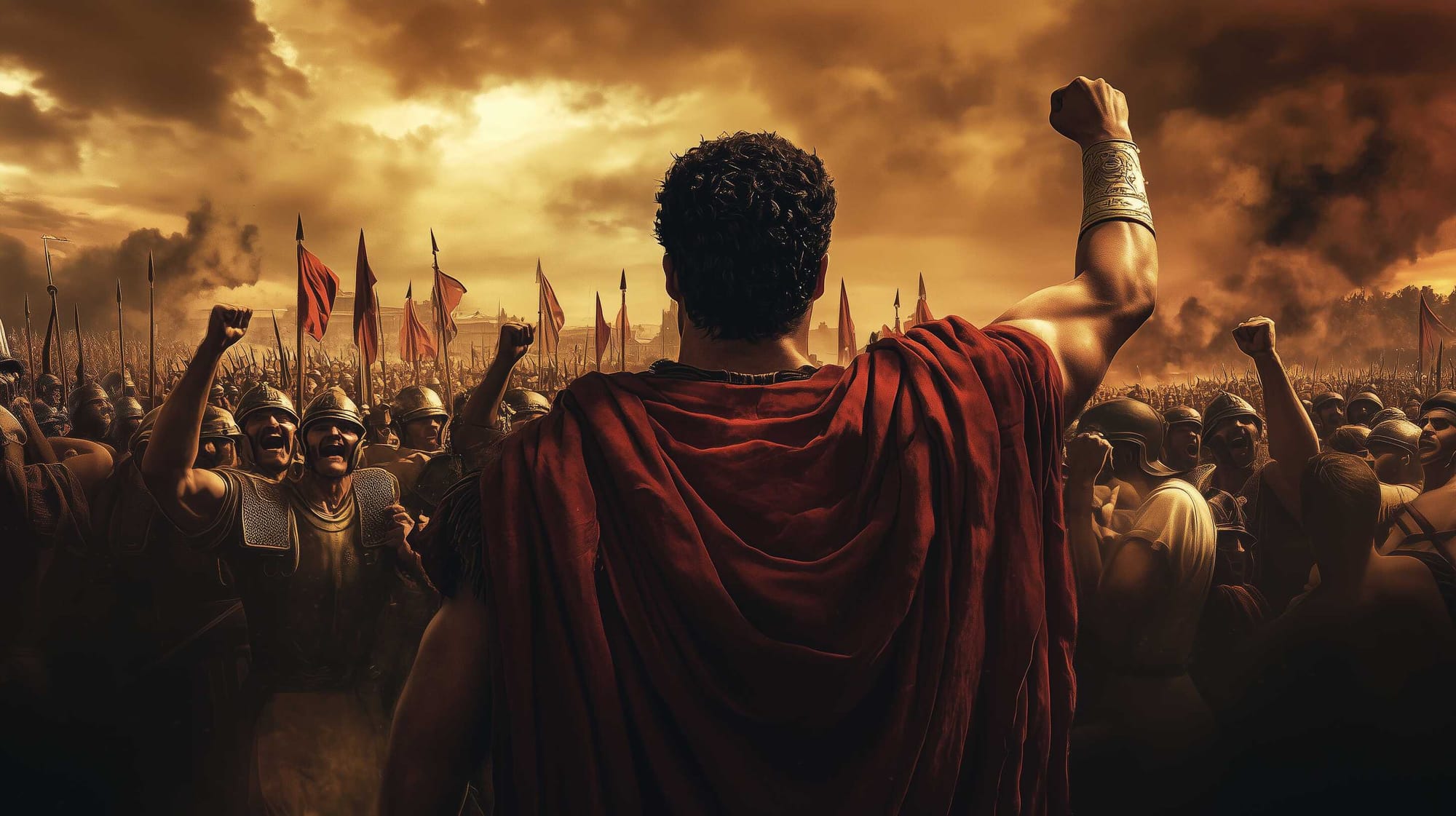
The Ceremony of Imperial Ascension
The Roman principate, a system that disguised monarchy under the guise of various offices and powers centralized in one individual, made the investiture of an emperor a multifaceted process. Officially, the role of emperor was not a constitutional monarchy and therefore could not be directly inherited, though dynastic considerations often influenced succession.
Historian Theodor Mommsen controversially argued that the principate lacked inherent legitimacy, effectively ceasing to exist with each emperor's death and only reviving with the next investiture. However, Egon Flaig (a German ancient historian and public intellectual, currently Emeritus Professor of Ancient History at the University of Rostock), countered this by emphasizing that the principate, once established in 27 BCE, remained largely uncontested and functioned as a de facto legitimate institution.
An emperor's authority was traditionally conferred through three key acts: a Senate vote, a lex by the people's assembly (comitia), and acclamation by the army. This legal foundation was supported by the granting of proconsular imperium (military command) and tribunician power (protection of the plebs).
By the late third century, however, the Senate and people of Rome played a diminished role in this process, with imperial authority increasingly determined by the army, whose gatherings were deemed equivalent to the people’s assembly. The legitimacy of an emperor hinged not only on legal authority but also on societal acceptance.

He was expected to embody exceptional dignitas (worthiness) and auctoritas (influence), legitimized by the approval of both the populace and the gods.
A depiction of how some Romans viewed their monarch as a God Emperor. Illustration: Midjourney
This approval depended on virtuous conduct and noteworthy achievements. While the army valued military prowess, the people looked for generosity and entertainment, and the elite classes prioritized civic conduct and collaboration with the Senate. Before Diocletian's reforms in 284 CE, no singular ceremony officially marked an individual’s transition to emperor.
Instead, the process involved interacting with various groups—soldiers, the Senate, and the people—at different times and locations. This could occur over a single day or span months if the ascension began outside Rome. Aspiring emperors followed a ritualized series of actions: soldiers first acclaimed the candidate and pledged loyalty, after which the emperor-designate gave a speech (adlocutio) and promised a donative.
Next came a Senate address and vote, later replaced by acclamations, followed by the approval of the people. By the fourth century, the investiture ritual included new symbols such as a diadem and purple mantle, marking the emperor’s elevated status and confirming the consensus of his rule. This evolving ceremony served to both legitimize the ruler’s authority and symbolize unity among Rome’s key constituencies.
The Rise of Didius Julianus: Accounts of a Controversial Elevation
In the aftermath of Emperor Pertinax’s assassination in 193 CE, the elevation of Marcus Didius Julianus to the throne remains a debated episode of Roman history. The chaotic events that followed the murder of Pertinax, including Julianus’ contested ascension, are detailed by three main ancient sources: Cassius Dio, Herodian, and the Historia Augusta.
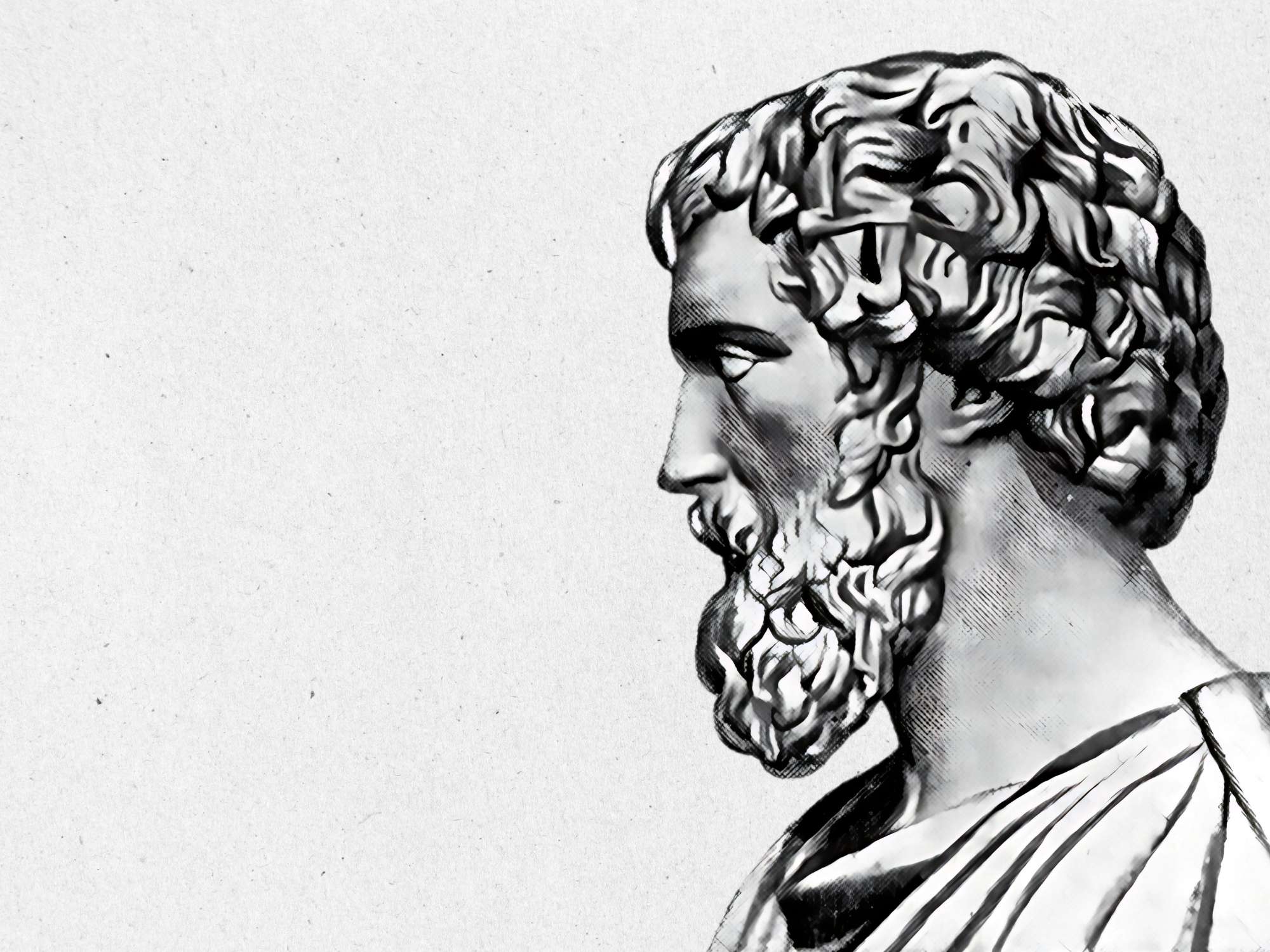
While these accounts agree on the broad outline of events, they differ significantly in their portrayal of Julianus’ character, motivations, and the legitimacy of his rise to power.
A gravure of Didius Julianus. Upscaling by Roman Empire Times
Cassius Dio, a senator present during these events, paints a damning picture of Julianus’ character and the circumstances surrounding his rise. Dio claims that Julianus was “an insatiate money-getter and a wanton spendthrift, who was always eager for revolution.” According to Dio, when Julianus learned of Pertinax’s assassination, he rushed to the Praetorian camp, where the urban prefect, Sulpicianus, was already attempting to secure the loyalty of the soldiers.
Dio describes the unprecedented scenario of two rival claimants bidding for the empire: “Then ensued a most disgraceful business and one unworthy of Rome. For, just as if it had been in some market or auction-room (ὥσπερ γὰρ ἐν ἀγορᾷ καὶ πωλητηρίῳ τινί), both the City and its entire empire were auctioned off.” Julianus ultimately secured the throne by offering a donative of 25,000 sesterces per soldier, outbidding Sulpicianus’ final offer of 20,000 sesterces.
Herodian’s account builds on this narrative, depicting the event as a public spectacle orchestrated by the Praetorians. He writes that the soldiers locked themselves in their camp and proclaimed from the walls that “the Empire was for sale, promising to hand it over to the man who offered the highest price.”
Herodian further notes Julianus’ strategic promises, including the restoration of Commodus’ memory and privileges that catered directly to the Praetorians’ desires. According to him, Julianus pledged to “restore to the praetorians all the powers they had possessed under [Commodus] and to give each soldier more gold than he asked for or expected to receive.”
In contrast, the Historia Augusta downplays the notion of an outright auction, emphasizing non-monetary factors in Julianus’ selection. The author claims, “Julianus was so frugal as to make a suckling pig or hare last for three days, if anyone by chance presented him with one; and often, moreover, even when there was no religious reason for it, he was content to dine on cabbages and beans without meat.”
This account suggests that the soldiers feared Sulpicianus might seek revenge for Pertinax’s murder and therefore preferred Julianus. While the donative is mentioned, it is framed as part of Julianus’ broader promises rather than the sole factor in his elevation.

The interaction between Julianus and the Senate is also depicted in conflicting ways. Dio recounts that Julianus intimidated the Senate with armed Praetorians and delivered an arrogant speech: “I see that you need a ruler, and I myself am best fitted of any to rule you. I should mention all the advantages I can offer, if you were not already familiar with them and had not already had experience of me.”
Conversely, the Historia Augusta presents Julianus as deferential, stating that he “came in the evening to the senate, and entrusted himself to it without conditions; thereupon, by decree of the senate he was acclaimed emperor.” According to this account, Julianus returned the next day to deliver a calm and measured speech, thanking the Senate for their trust and declining excessive honors: “He accepted also the name of Father of his Country, but refused a silver statue.”
Public reaction to Julianus’ rule was overwhelmingly negative. Dio describes how the populace denounced him as a “stealer of the empire and parricide.” Herodian notes that the Praetorians had to shield Julianus from angry mobs, who pelted him with stones and shouted curses.
Even the Historia Augusta, which generally presents Julianus in a favorable light, acknowledges the hostility of the people, stating that “the populace assailed him with violent revilings, hoping that he might resign the sovereignty which the soldiers had given him.”
One significant detail noted by Dio and Herodian is that the Praetorians hailed Julianus as Commodus during his acclamation, signaling their expectation that he would reverse Pertinax’s strict military policies and adopt the lenient stance of the last Antonine emperor. However, Julianus refrained from officially adopting Commodus’ name, likely to avoid further alienating the Senate.
The events surrounding Julianus’ investiture and his short-lived reign highlight the precarious balance of power in imperial Rome. The accounts of Dio, Herodian, and the Historia Augusta reflect not only the complexities of Julianus’ rise but also the biases of their authors, offering varied interpretations of one of the most controversial moments in Roman history. (Ritual dynamics in the Ancient Mediterranean, edited by Angelos Chaniotis)
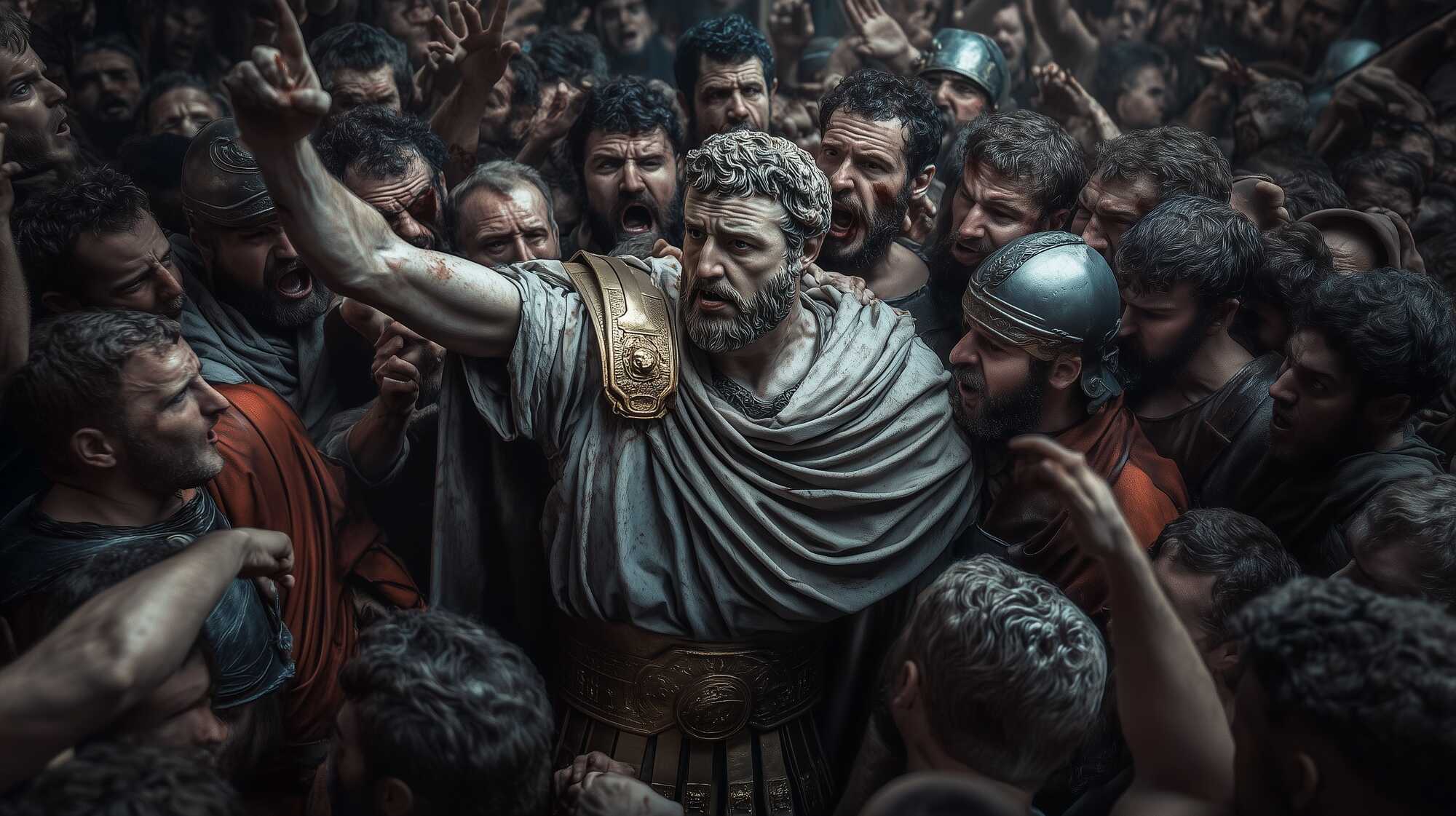
Revisiting 193 CE: The Assassination of Pertinax and the Rise of Didius Julianus
It is worth studying Alan Appelbaum's "Another Look at the Assassination of Pertinax and the Accession of Julianus." The traditional narrative of 193 CE claims that the Praetorian Guard assassinated Emperor Pertinax in a chaotic and undisciplined act, unrelated to the subsequent elevation of Didius Julianus.
Many historians maintain that the Guard "shamefully" auctioned the imperial office, with Julianus securing the throne as the highest bidder. However, Alan Appelbaum challenges this view, arguing that a closer reading of the sources suggests a more coordinated sequence of events, possibly implicating Julianus in Pertinax’s assassination.
One More Look at The Sources
The conventional narrative relies on Cassius Dio, senator and eyewitness, and Herodian, an imperial official who was a child during these events. While Dio’s account, though surviving only in later epitomes, is generally preferred, Herodian's narrative, which may have drawn on Dio, provides additional insights. The Historia Augusta, written much later, also reflects an earlier Latin tradition, possibly derived from the lost works of Marius Maximus or an unknown continuator of Suetonius.
Appelbaum highlights the limitations and biases of these sources. For example:
- Dio coined the metaphor of an "auction," likening the competition for the Guard's favor to a marketplace transaction.
- Herodian exaggerated Dio's metaphor into a dramatic scene where soldiers openly declared the empire for sale.
- The Historia Augusta downplays monetary competition and emphasizes Julianus’ promises, including the restoration of Commodus’ memory and the Guard’s privileges.
Appelbaum argues that these discrepancies suggest the need for a critical reevaluation of the historical record.
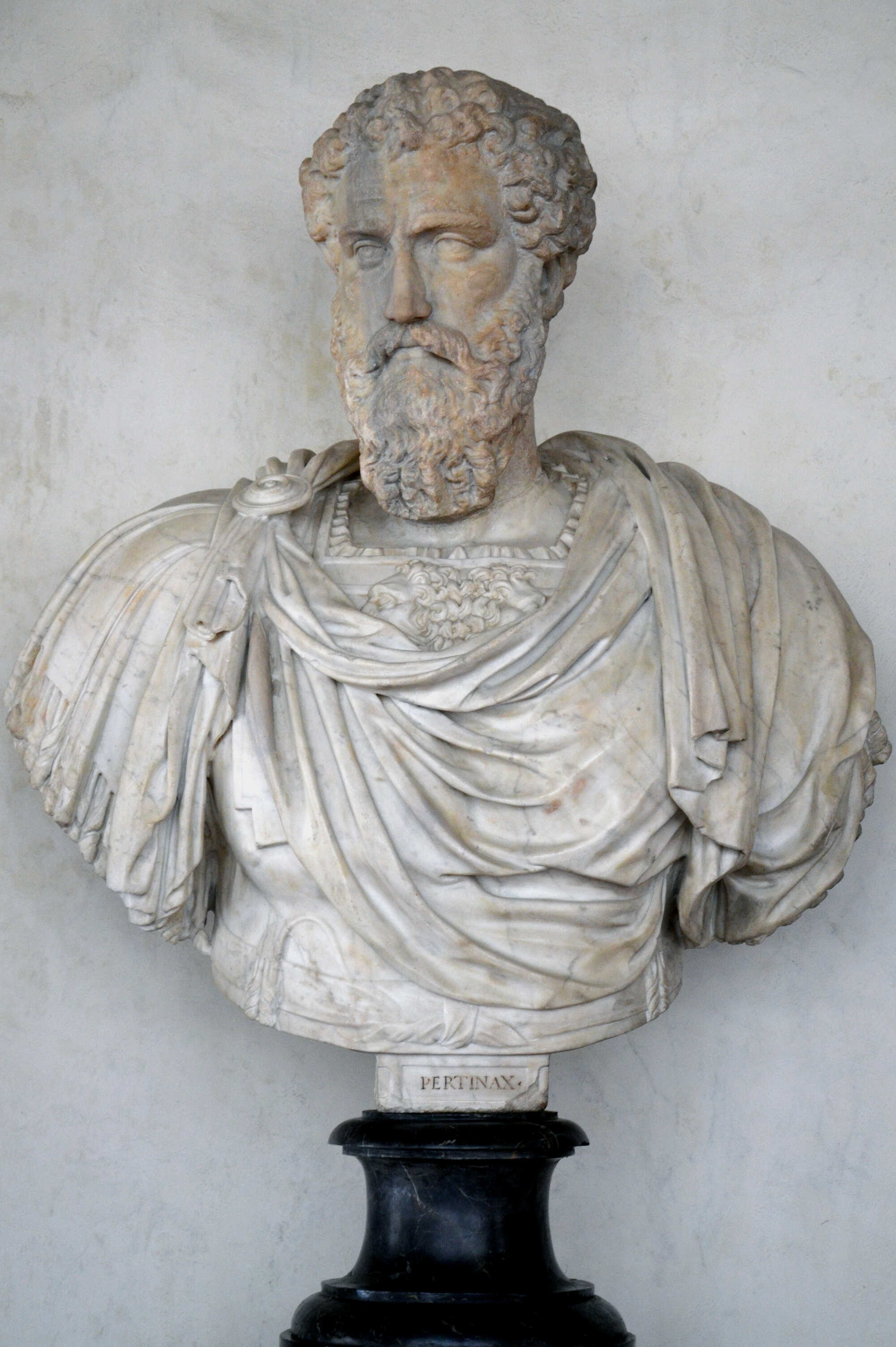
The "Auction" that… wasn't
Appelbaum contends that Dio’s description of an auction was metaphorical, not literal. Dio described how both Julianus and Pertinax’s father-in-law, Sulpicianus, offered money to the Praetorian Guard. Soldiers carried messages between the two, escalating bids until Julianus promised 25,000 sesterces per soldier.
Dio likened this process to a marketplace, writing, “just as if it had been in some market or auction room.” Herodian expanded this into a fictionalized event, claiming the soldiers loudly announced the empire was for sale. The Historia Augusta omits the auction entirely, focusing on Julianus’ political maneuvers and the soldiers’ fear that Sulpicianus, if chosen, would avenge Pertinax’s murder.
Why was Pertinax Assassinated?
Pertinax’s assassination is often attributed to general dissatisfaction within the Praetorian Guard. Dio and Herodian cite his enforcement of discipline and refusal to grant them the privileges they enjoyed under Commodus as key grievances.
However, Appelbaum argues that Pertinax’s death was orchestrated by Laetus, the Praetorian prefect who had installed him. Dio notes that Laetus incited the Guard, likely in response to Pertinax’s attempts to reform it and diminish the prefect’s authority. Pertinax’s directive to Flavius Sulpicianus to “set matters in order” at the camp may have triggered Laetus’ fears of losing power.
Julianus’ Role in the Assassination
The connection between Julianus and Pertinax’s assassination remains speculative. Appelbaum notes that later sources, such as Aurelius Victor and Eutropius, directly blame Julianus for the murder, though Dio and the Historia Augusta, as aforementioned, merely mention that the Roman populace accused him of being a “stealer of the empire and parricide.”
Appelbaum suggests that Julianus may have been aligned with Laetus, as the Guard’s endorsement of Julianus reflects the prefect’s influence. Julianus’ subsequent execution of Laetus, however, complicates this theory, though it may simply reflect Julianus’ awareness of Laetus’ untrustworthiness.
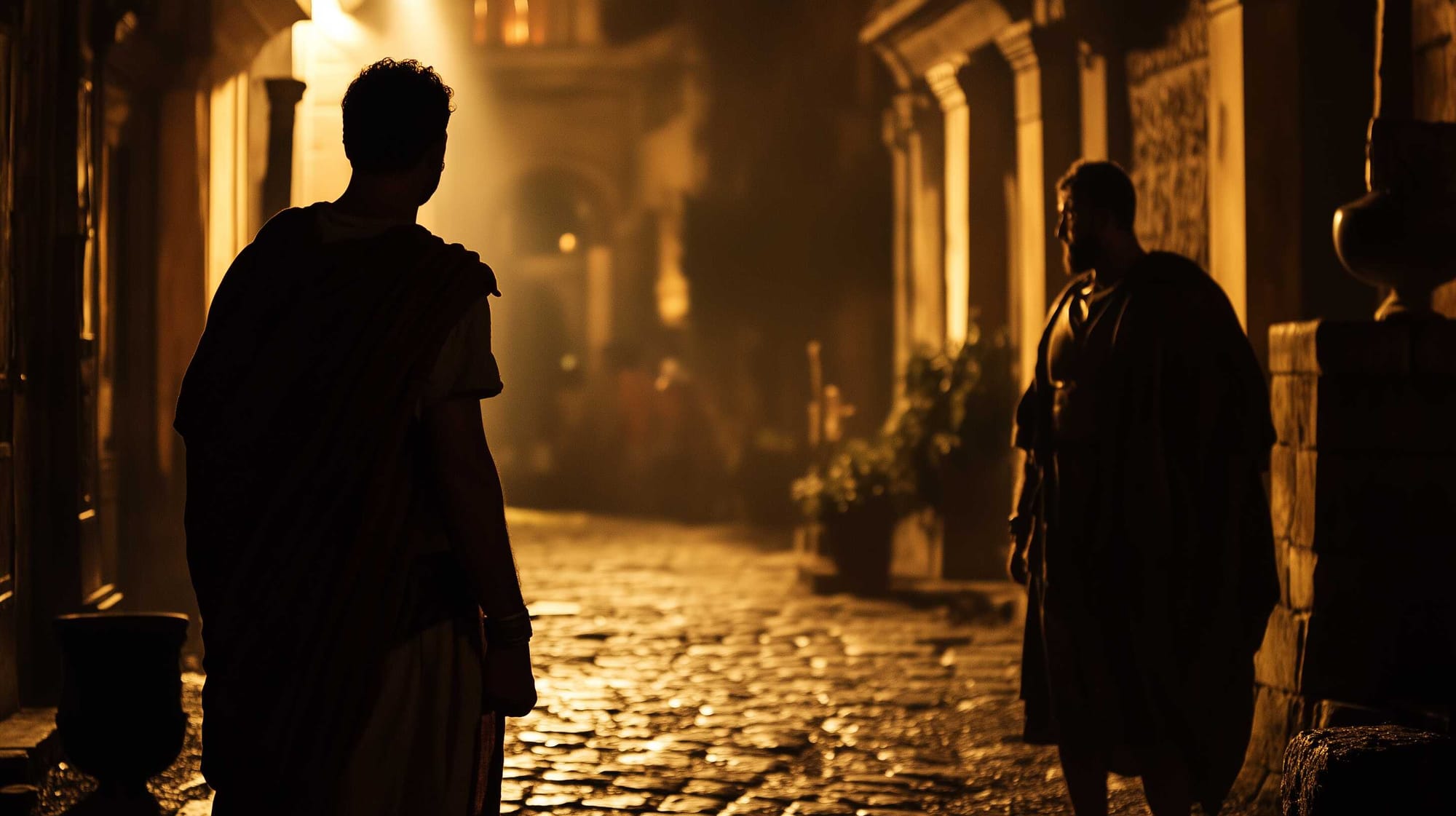
The Accession of Julianus
Julianus’ rise mirrors that of Pertinax: both gained power through the support of the Praetorian Guard, cemented by monetary promises. However, unlike Pertinax, Julianus faced a rival claimant in Sulpicianus, whose connections to Pertinax threatened the Guard’s interests. Julianus leveraged this fear, along with his financial offers, to secure the throne.
Appelbaum concludes that the so-called auction was not an actual sale but a process shaped by political and military dynamics. He emphasizes that Julianus, while not definitively proven to have orchestrated Pertinax’s murder, benefitted from it and likely anticipated his opportunity to claim the throne.
His analysis dismantles the traditional view of Pertinax’s assassination and Julianus’ accession as isolated events. By reexamining the sources, he highlights the political intrigue and power struggles that defined this turbulent period. The notion of an auction, though vivid, obscures the complexities of Julianus’ rise, which was shaped by alliances, rivalries, and the machinations of the Praetorian Guard.
Judging from our analysis, it seems we cannot be certain as to what exactly happened, and if these reputable sources "speak" literally or metaphorically… Still, poor Julianus ruled for only 66 days and was murdered at the palace by a soldier. According to Cassius Dio, his last words were:
”But what evil have I done? Whom have I killed?”

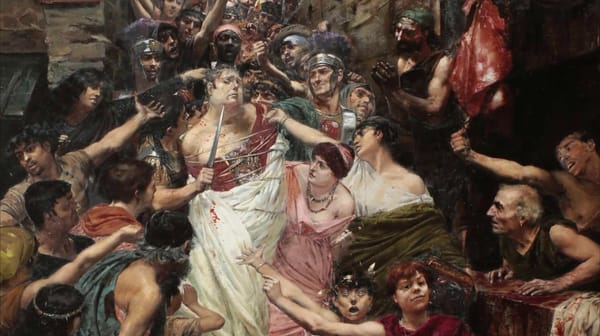
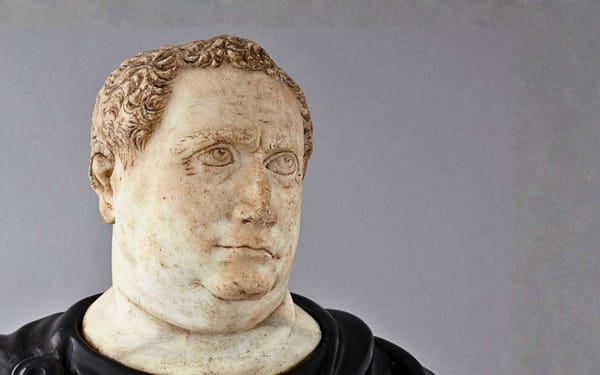
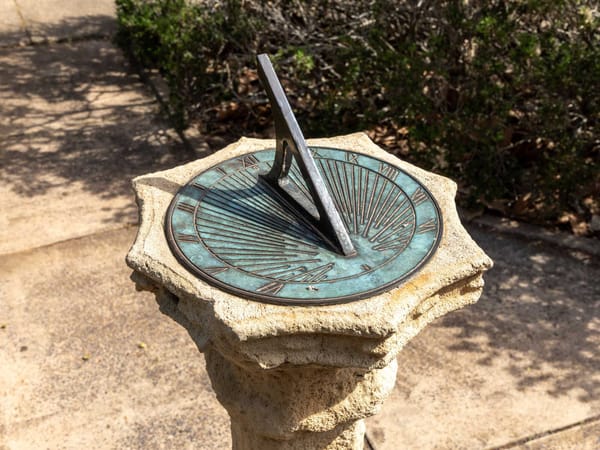
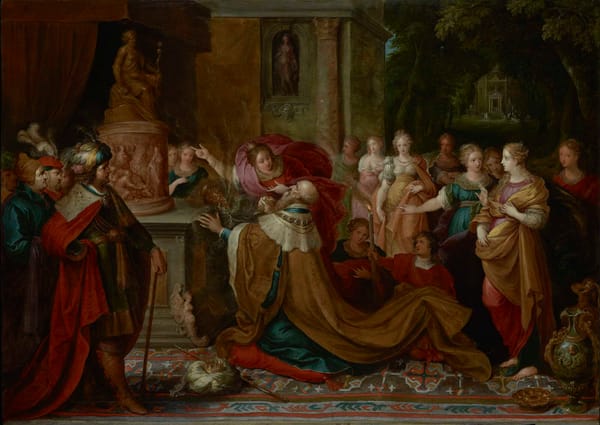
About the Roman Empire Times
See all the latest news for the Roman Empire, ancient Roman historical facts, anecdotes from Roman Times and stories from the Empire at romanempiretimes.com. Contact our newsroom to report an update or send your story, photos and videos. Follow RET on Google News, Flipboard and subscribe here to our daily email.
Follow the Roman Empire Times on social media: